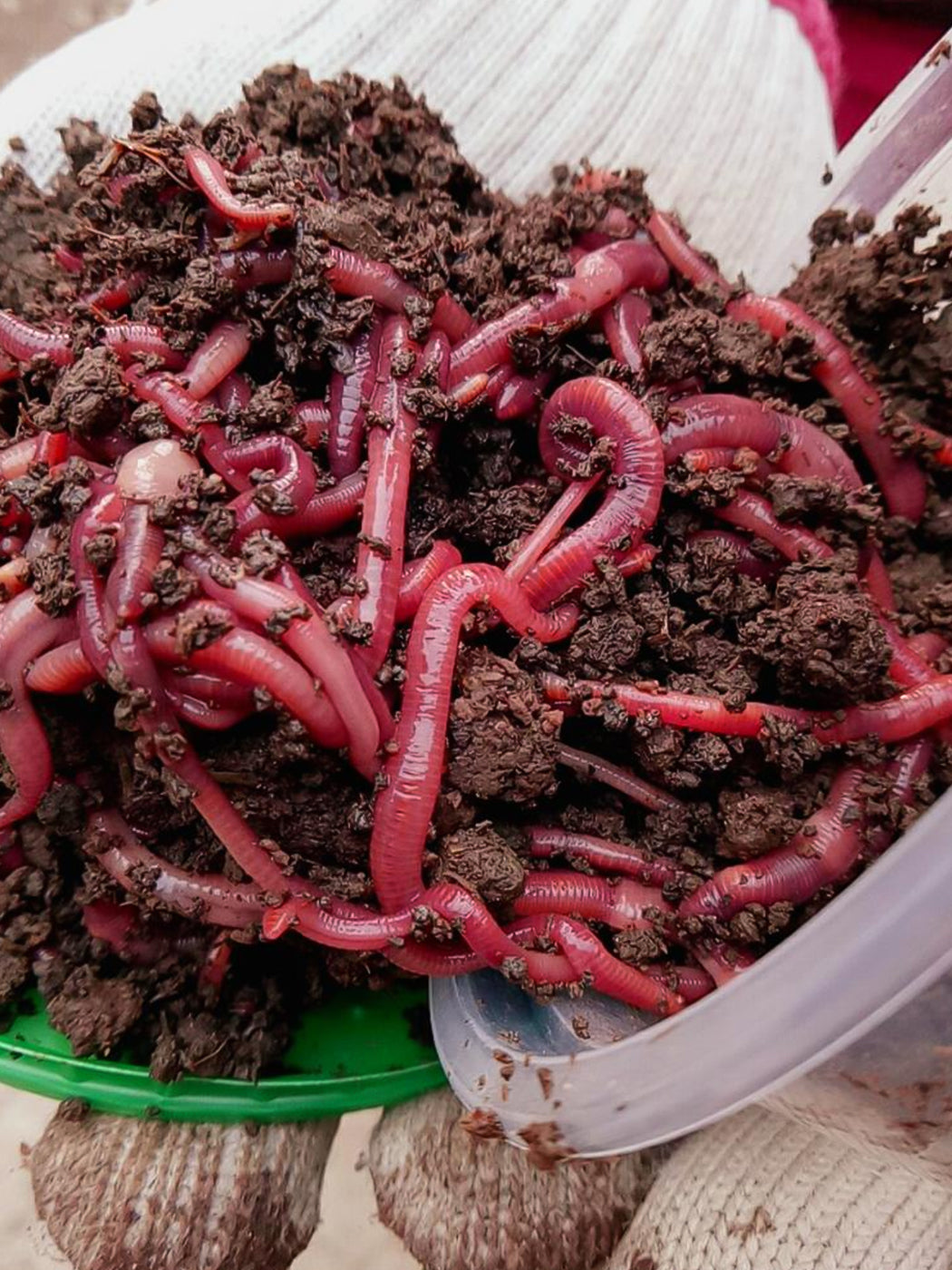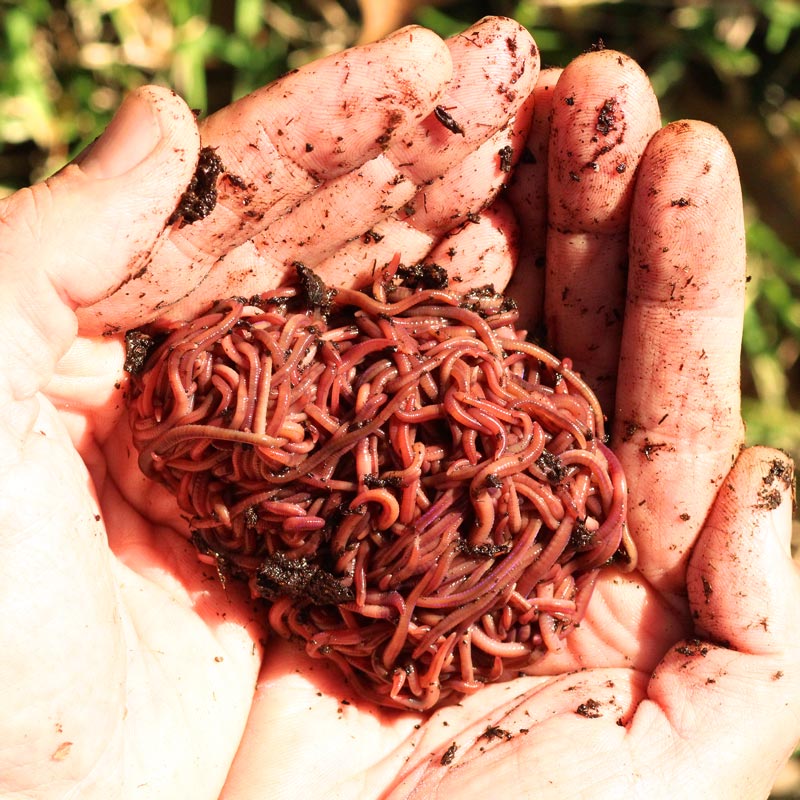Red Wigglers 101: Everything You Need to Know for Thriving Gardens
Red wigglers, or Eisenia fetida, play an essential function in sustainable horticulture practices, offering as reliable decomposers that convert natural waste into useful vermicompost. Recognizing their habitat, dietary preferences, and the myriad benefits they offer can transform your horticulture approach.
Recognizing Red Wigglers

Red wigglers thrive in atmospheres rich in organic material and dampness. Red Wiggler Express. They possess a distinct digestion system that permits them to process food scraps swiftly, excreting castings that are loaded with vital nutrients such as nitrogen, phosphorus, and potassium. These spreadings improve soil structure, boost water retention, and foster useful microbial task, every one of which add to robust plant health and wellness
In addition, red wigglers can endure in varied problems, making them adaptable to various gardening practices, including indoor and exterior composting systems. Their ability to consume large quantities of organic waste everyday positions them as valuable allies for both home gardeners and commercial farmers. By integrating red wigglers into horticulture efforts, one can substantially improve soil fertility and support lasting gardening practices.
Suitable Environment for Red Wigglers
Developing an optimal setting for red wigglers is important for maximizing their composting capacities and overall health and wellness. Red wigglers thrive in moist, dark, and well-aerated habitats, which carefully resemble their native environments in leaf litter and rotting organic issue. A suitable environment ought to provide a temperature level array in between 55 ° F and 77 ° F(13 ° C to 25 ° C), as severe temperature levels can worry or harm the worms.
The bed linens product, such as shredded paper, cardboard, or coconut coir, need to be kept moist but not overly wet, as extreme wetness can cause anaerobic conditions harmful to worm health. Additionally, a pH degree between 6.0 and 7.5 is excellent, making sure a well balanced setting.
Proper aeration is similarly essential; it permits oxygen blood circulation and protects against the build-up of unsafe gases. A container or bin created for vermicomposting must have water drainage holes to eliminate excess wetness and advertise airflow. Normal monitoring of these problems is necessary for keeping a growing red wiggler populace, inevitably boosting their efficiency in breaking down natural waste and enriching yard dirt.
Dietary Requirements and Preferences

Red wigglers exhibit particular choices; they are especially warm of softer, decomposing materials over more difficult or more fibrous materials. It is important to prevent feeding them citrus peels, onion, and garlic in huge quantities, as these can be unsafe. In addition, meat, dairy products, and oily foods ought to be excluded, as they can attract parasites and create undesirable odors.
Advantages of Utilizing Red Wigglers
The amazing benefits of using red wigglers in horticulture expand far beyond their duty in composting. These flexible organisms add dramatically to dirt wellness, enhancing nutrient accessibility and advertising microbial task. By aerating the soil as they tunnel, red wigglers improve water drainage and origin infiltration, producing an optimal atmosphere for plant growth.
In addition, red wigglers are effective recyclers of natural waste, transforming it right into nutrient-rich castings that offer as an exceptional natural plant food. These spreadings consist of valuable bacteria and important nutrients, such as nitrogen, phosphorus, and potassium, which are important for plant growth. The slow release of nutrients from worm spreadings ensures a constant supply, lessening the risk of nutrient leaching and promoting lasting gardening practices.
Additionally, the presence of red wigglers can aid suppress soil-borne plant illness. Their gastrointestinal procedures generate substances that hinder harmful pathogens, thus enhancing plant health. Ultimately, making use of red wigglers fosters a more lasting gardening strategy by lowering dependence on chemical plant foods and advertising a closed-loop system, where waste is transformed into valuable resources. Generally, integrating red wigglers into horticulture practices offers a wide variety of environmental and agricultural benefits.
Composting With Red Wigglers

To initiate a successful vermicomposting system, select an appropriate container with correct air flow and drainage. The suitable setting for red wigglers consists of a wet, dark setup with temperatures in between 55 ° F and 77 ° F. Begin by layering shredded paper, cardboard, and food scraps, making certain a well balanced mix explanation of carbon and nitrogen-rich materials.
Red wigglers thrive on vegetable peels, fruit scraps, coffee grounds, and eggshells, while preventing meat, dairy products, and oily foods that can bring in insects. Consistently keep an eye on moisture levels; the bed linen needs to perspire yet not soaked. Harvest worm spreadings every few months by separating the worms from the compost, which can then be utilized directly in gardens or stored for later usage.
Applying vermicomposting not only minimizes landfill waste yet additionally improves yard soil, promoting healthy plant development and lasting gardening practices. Embrace this green approach to improve your gardening endeavors.
Verdict
In recap, red wigglers are essential microorganisms for enhancing yard performance with reliable composting. By utilizing red wigglers, garden enthusiasts can considerably boost soil quality and nutrient schedule, fostering healthier plant growth.
Comments on “Use Lake Hickory Bait for Exceptional Lawn Health and Gorgeous Greens”